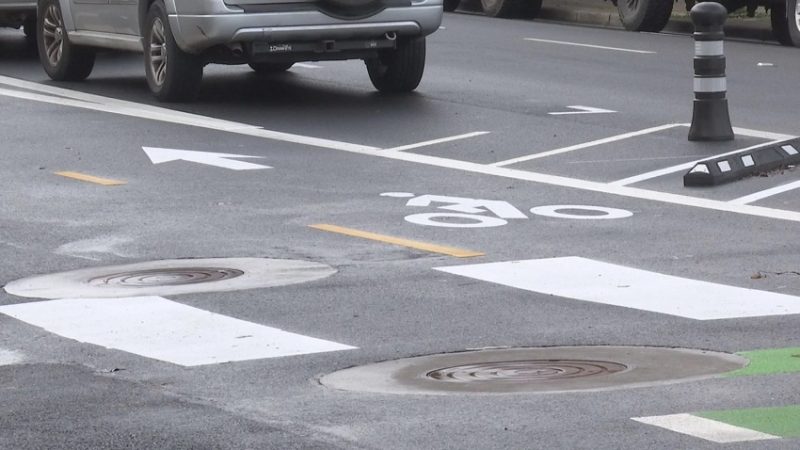MEDFORD, Ore. – The City of Medford is exploring potential changes to the controversial bike lanes along Main Street after a mixed public reaction to the re-striping project completed in the fall of 2023.
During a recent City Council meeting, Public Works Director John Vial presented a range of options for modifications to the city’s Transportation System Plan, with a focus on the Main Street bike lanes. The re-striping, which aimed to improve bike safety and reduce traffic, has sparked debate among residents, business owners, and commuters alike, with some expressing concern about the resulting traffic delays and changes to local flow.
The council reviewed more than a dozen proposed alternatives, narrowing them down to three options. These range in cost from $10,000 to as much as $10 million. While some options would involve minor changes to the current design, others would see significant alterations to the street layout.
“Any change is gonna get pushback, right?” said City Councilor Kevin Stine during the meeting. “If we’re looking for the thing that has consensus, all the people are thumbs up on, we’re never gonna find it.”
One of the most discussed proposals includes converting Main Street into a two-way street with bike lanes on both sides, which would require significant adjustments to existing traffic patterns. Other suggestions focus on reorienting current bike lanes to reduce barriers and enhance safety for cyclists.
The city is working to find a solution that balances the needs of all parties involved—cyclists, drivers, and local businesses. As Councilor Stine acknowledged, it will be difficult to please everyone, but the council remains committed to considering all perspectives before moving forward.
A final decision on the changes has not been scheduled, with more community input and further research needed. City officials are hopeful that by reviewing multiple options, they can develop a plan that addresses safety concerns while minimizing disruption to Main Street traffic.
As the debate continues, residents will likely keep a close eye on the evolving conversation, with the outcome potentially shaping the future of bike lanes and urban transportation planning in Medford.

